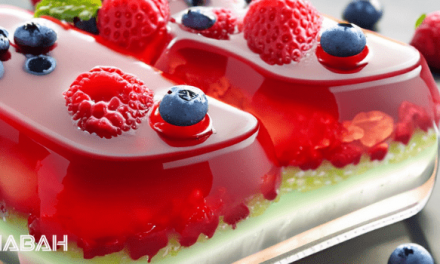As a muslim consumer who values transparency and wants to make informed choices, I was curious to delve into the halal status of KitKat. In this article, I will uncover the truth behind KitKat’s halal certification, providing you with the knowledge you need to confidently enjoy these delectable treats.
A Close Look at Ingredients and Manufacturing
KitKat is a popular chocolate-covered wafer bar manufactured by Nestlé. Originally produced in the United Kingdom in 1935, KitKat is now sold in over 100 countries worldwide. With its crispy wafers and chocolate coating, KitKat has become a beloved snack for many.
However, for observant Muslim consumers, an important question arises: Is KitKat halal?
Halal refers to what is permissible under Islamic dietary laws. For a food to be halal:
- It must not contain any pork or pork by-products
- Animal-derived ingredients must come from halal slaughtered sources
- Alcohol is prohibited
The issue of whether KitKat is halal stems from:
- Potential animal-derived ingredients
- Emulsifiers
- Whey powder
- Natural flavors
- Risk of cross-contamination with non-halal substances during manufacturing
- Lack of halal certification in some markets
To determine if KitKat is halal, we need to analyze:
- Ingredients used in KitKat
- Manufacturing process
- Whether it has received halal certification
The halal status of KitKat depends on where it is manufactured and the ingredients used in that country.
KitKat Ingredients
The classic KitKat recipe contains:
- Cocoa powder
- Wheat flour
- Sugar
- Palm oil
- Skimmed milk powder
- Whey powder
- Emulsifiers (e.g. soya lecithin)
- Natural flavors
Most of the ingredients in KitKat are halal. Cocoa, wheat, sugar and palm oil are all halal.
The potential non-halal ingredients are:
- Whey powder – Must come from halal rennet
- Emulsifiers – May be animal-derived
- Natural flavors – May contain alcohol
Manufacturing Process
There is some ambiguity surrounding the halal certification status of KitKat products produced in the United States. Nevertheless, it is worth noting that Hershey’s, the company responsible for manufacturing KitKat bars in the United States, has provided confirmation that KitKat bars available for purchase in the U.S. are considered halal by their very nature. This assurance indicates that these KitKat bars do not contain any ingredients classified as haram, or forbidden in Islamic dietary law.
However, it is essential to exercise caution and remain vigilant when considering the halal status of any product, including KitKat bars. This is due to the fact that the presence of specific halal symbols or certifications may vary based on the product’s geographic location and its unique packaging or design. As such, it is strongly recommended for individuals seeking halal products to thoroughly inspect the packaging and labels of KitKat bars, or any other food items, to ensure that they meet their specific dietary requirements.
Halal Certification
To confirm its halal status, KitKat should be certified by recognized halal authorities. This provides assurance about ingredients sourced and production methods.
You can check if KitKat bars have halal certification symbols on the packaging. This is usually in Islamic markets.
Halal certification varies across different international markets where KitKat is sold.
Analysis of KitKat’s Halal Status in Different Markets
KitKat’s halal compliance varies based on the country where it is produced and sold.
United States
- Not halal certified
KitKat bars sold in the USA do not have halal certification. The whey powder used may be from non-halal sources.
- Risk of cross-contamination with non-halal ingredients.
United Kingdom
- Not halal certified
- Contains non-halal emulsifiers according to HalalGuidance.com:
KitKats sold in UK contain E442 (ammonium phosphatides) and E476 (polyglycerol polyricinoleate) emulsifiers which are not halal.
Middle East
- Often halal certified
- Manufactured in halal facilities
In Islamic countries like UAE, Saudi Arabia and Pakistan, KitKat is halal certified and uses halal ingredients.
Malaysia
- Has Malaysian JAKIM halal certification
- Produced in dedicated halal plant, as noted on KitKat.com:
All KitKat products made in Malaysia are halal suitable and manufactured in a dedicated halal facility.
Japan
- Uses vegetarian ingredients
- Free of animal-derived ingredients
According to KitKat.com:
Japanese KitKat products are vegetarian and do not contain any meat or meat derived ingredients.
Is KitKat Halal – FAQ
Is Kit Kat Halal?
Yes, KitKat is halal-certified.
What is KitKat?
KitKat is a popular chocolate wafer bar that is produced by Nestlé.
What does it mean for a product to be halal?
Halal refers to food and other products that are permissible under Islamic law. It means that the product has been prepared, produced, and manufactured using methods that comply with Islamic dietary guidelines.
Is the ingredient list of KitKat halal?
Yes, the ingredient list of KitKat is halal. Nestlé carefully selects and verifies the ingredients used in their products to ensure they meet halal standards.
Does KitKat have halal certification?
Yes, KitKat has obtained halal certification, confirming that it complies with halal standards.
Are all KitKat flavors halal?
Yes, all KitKat flavors are halal-certified. Whether it is milk chocolate, dark chocolate, or any other flavor variant, they are all suitable for consumption by individuals following a halal diet.
How can I check if KitKat is halal?
You can check if KitKat is halal by looking for the halal certification logo on the packaging. Additionally, you can review the ingredient list provided on the packaging to ensure it does not contain any haram (forbidden) ingredients.
Is it true that KitKat may contain non-halal ingredients?
No, it is not true. KitKat is halal-certified and does not contain any non-halal ingredients. Nestlé takes great care to maintain the halal status of their products.
Can individuals following a halal diet consume KitKat?
Yes, individuals following a halal diet can consume KitKat as it is halal-certified and complies with halal guidelines.
Is it confirmed that KitKat is not halal?
No, it is not confirmed. KitKat is generally considered halal, and it has obtained halal certification to support this claim.
Conclusion
In summary, the halal status of KitKat depends on the specific market:
- In Islamic countries, KitKat is often halal certified and produced in dedicated facilities using verified ingredients.
- In Western countries like the US and UK, KitKat is not halal certified and may contain or be cross-contaminated with non-halal ingredients.
- Japanese KitKat uses vegetarian ingredients making it more likely to be halal.
As HalalHaramWorld.com concludes:
The halal status of KitKat relies on the manufacturing process and ingredients used in each country. Muslim consumers should check for halal certification to be certain.
Based on this analysis, observant Muslim consumers should:
- Avoid KitKat in countries where it is not certified halal to be safe.
- Consume KitKat from countries where it is certified halal or uses vegetarian ingredients.
- Check packaging for halal certification symbols.
With proper certification and manufacturing procedures, KitKat has the potential to be halal-compliant worldwide. Brand awareness and consideration of Muslim consumers will help achieve this goal.





